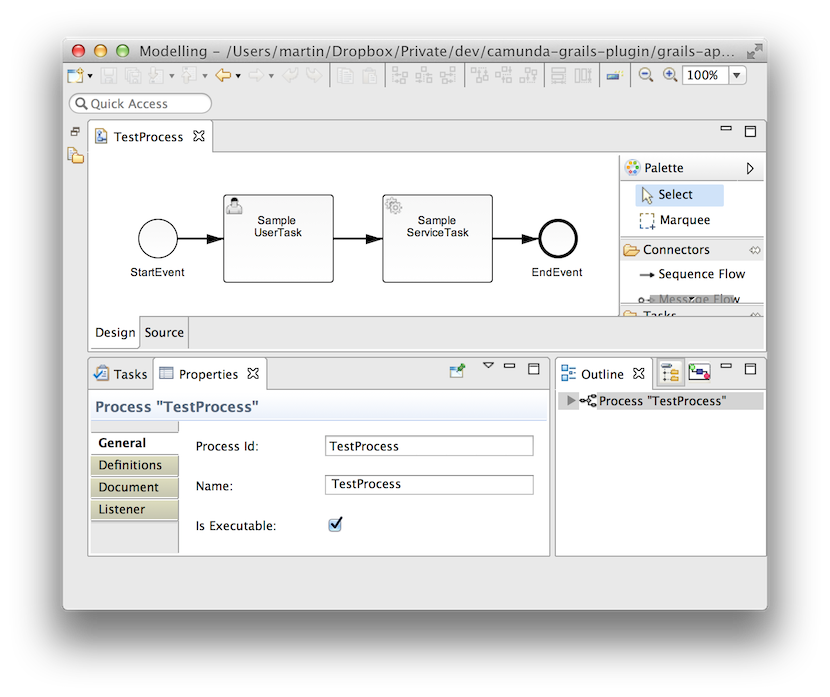(Quick Reference)
3 A Word about Conventions - Reference Documentation
Authors: Martin Schimak
Version: 0.5.0
3 A Word about Conventions
Grails uses
convention over
configuration to configure
itself. This typically means that the names and locations of files are used instead of explicit configuration.
Following this paradigm and the approach of other plugins like e.g.
quartz or
routing, the
camunda plugin adds the "grails-app/processes" folder as soon as
you create your first process via the
create-process command:
- your-project = top level project directory
- grails-app = standard grails layout directory
- processes = process definitions directory for *.bpmn resources
Within that folder you may choose to group your
*.bpmn process definitions into packages. Every
*.bpmn file
inside that directory will go into your
*.war when packaging it via Grails. (You may then choose to
automatically redeploy those process definitions - or not - by explicitely configuring the 'deploymentResources'
setting of your
configuration.)
The
create-process command uses another two naming conventions. The name you choose for your process
will be suffixed with
*Process.bpmn - in case you haven't provided that yourself as a part of the name.
Therefore issueing e.g.
grails create-process org.camunda.my.Test
will result in the following two files being generated for you:
| Created file grails-app/processes/org/camunda/my/TestProcess.bpmn
| Created file test/integration/org/camunda/my/TestProcessSpec.groovy
Furthermore, every executable BPMN process must have an id defined inside its xml structure. The plugin takes care
of generating this id for you - in the given example as "TestProcess", hence the name of the generated bpmn
resource - but without package name and file extension:
<process id="TestProcess" name="TestProcess" isExecutable="true">
…
</process>
When editing this freshly generated process definition with
camunda modeler, you
will see this id when opening the "properties" pane and clicking into the free area of the diagram:

Feel free to change the generated 'name' attribute to a better human readable version of the name!
This 'id' attribute is needed when using the
camunda API services, like e.g. starting a process
instance by 'key' (which is referring to this id attribute):
runtimeService.startProcessInstanceByKey("TestProcess")Both conventions - the
*Process suffix as well as the artifact 'id' being unique across packages follow typical
Grails conventions and therefore make sense for greenfield projects. However, the plugin will not strictly enforce
these conventions. You may choose to place other
*.bpmn files into your grails-app/processes folder and they
will be accessible by integration tests, bundled into the war and deployed to the engine, too.



